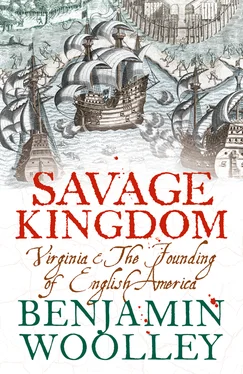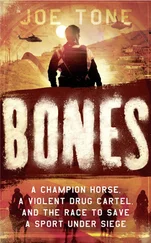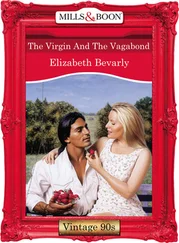The relentless assaults soon took their toll on English morale, and the acrimony that had been stewing since the ships were stuck on the Downs erupted with new vigour. The council began to disintegrate. ‘The cause of our factions was bred in England,’ Smith later observed, but ‘grew to that maturity among themselves that spoiled all’.
Religion remained a point of contention. On arrival, the settlement chaplain Robert Hunt had implemented a puritanical regime of daily common prayer, and lengthy sermons on Sunday mornings. Wingfield made his dislike of such pious earnestness known, and on several occasions found opportunities to miss, and even to cancel, the sermons.
In fact, according to their accusers, Wingfield and Newport had no interest in the venture’s spiritual mission, even though it featured prominently in the Royal Charter. They were merely ‘making Religion their colour, when all their aim was nothing but present profit’.
The most forceful critic was Captain Smith. Having kept uncharacteristically quiet during the James river expedition, he was driven by an overwhelming sense of vindication to confront Wingfield and the council. He demanded that the president take manful possession of this virgin land. The Indians had not cultivated it, so it no more belonged to them than to the wildlife in the undergrowth or the birds in the trees. In any case, these vast expanses contained ‘more land than all the people in Christendom can manure, and yet more to spare than all the natives of those Countries can use’. 27
This land was waiting to be fashioned ‘by labour’ into a new ‘commonwealth’, a new England. What could command more honour for a man, Smith later wrote, ‘with only his own merit to advance his fortunes … than planting and building a foundation for his posterity, got from the rude earth by God’s blessing and his own industry without prejudice to any?’ He continued:
What can he do less hurtful to any, or more agreeable to God, than to seek to convert those poor Savages to know Christ and humanity, whose labours with discretion will triple requite thy charge and pain? What so truly suits with honour and honesty, as the discovering things unknown, erecting Towns, peopling Countries, informing the ignorant, reforming things unjust, teaching virtue and gain to our native mother country? 28
Several of the gentlemen excluded from the council could identify with these sentiments, and began to agitate for a more active, aggressive policy. Archer started ‘spewing out … venomous libels and infamous chronicles’ about Wingfield’s government. Wingfield had ‘affected a kingdom,’ he claimed. Archer was trying to summon a parliament, Wingfield retorted. On 6 June, Archer led a group, including several soldiers who had left their positions, who ‘put up a petition to the council for reformation’. 29
The content of the petition was not recorded, but its consequence was that four days later, Smith was finally absolved of all charges and made a member of the council. According to Smith’s later testimony, Wingfield was also required to pay him compensation to the value of £200, an enormous sum, which Smith claimed he magnanimously donated ‘to the store for the general use of the colony’. 30 The following day, ‘articles and orders for gentlemen and soldiers were upon the court of guard and content was in the quarter’, meaning that peace had been restored among the unsettled ranks.
On Saturday 13 June, to reinforce a new but still fragile mood of accord, Newport presented the soldiers and labourers with a sturgeon 7 foot long, which had been caught by the crew of his ship. The next day, the settlement was approached by two unarmed envoys. Archer recognized one of them to be the ‘Kind Consort’ who had followed them in the early days of the James river expedition. The reappearance of this mysterious individual comforted the settlers, and he was invited into the fort, which was in its final stages of construction. The envoy endeavoured to explain what had been going on, reassuring the embattled, bewildered Englishmen around him that the chiefs of the Pamunkey and Arrohateck were still their friends, as were those of two tribes the English had not yet encountered, the Mattapanient and Youghtanan, who lived on western tributaries of the Pamunkey, the river north of the James. However, several other tribes were their ‘contracted enemies’, including the Quiyoughcohannock, the Weyanock and the Paspahegh, upon whose land the English had now settled. ‘He counselled us to cut down the long weeds round about our fort and to proceed in our sawing,’ Archer reported. ‘Thus making signs to be with us shortly again, they parted.’
The day after this encounter, the fort was pronounced complete. It was crudely made and far from impregnable, but probably sufficient to frustrate a full-scale attack. Inside, however, conditions for the settlers were not much better than when they had arrived, possibly worse. Having failed to extract any trade or tribute from the Indians, their food was little more than bran. ‘Our drink was water, our lodgings castles in the air,’ as Smith put it. There were no permanent buildings, except perhaps for a store to keep provisions and armaments. 31
Newport decided the time had come for him to leave. The ships were now fully laden with clapboard timber, the barrel of soil to test for metals, and upwards of two tons of sassafras, the highly profitable commodity brought back by Gosnold on his 1602 voyage.
The council assembled to draft a progress report for the Royal Council in London. It was brief and began on an optimistic note:
Within less than seven weeks, we are fortified well against the Indians; we have sown good store of wheat; we have sent you a taste of clapboard; we have built some houses; we have spared some hands to a discovery; and still as God shall enable us with strength we will better and better our proceedings.
There followed a complaint about the sailors, ‘waged men’ who fed off their supplies, and gathered valuable commodities such as sassafras for their own private gain, losing or damaging many tools in the process. However, mindful that these same sailors might be recruited for future relief missions, the council asked that they be ‘reasonably dealt withal, so as all the loss neither fall on us nor them’.
‘The land would flow with milk and honey if so seconded by your careful wisdoms and bountiful hands,’ the report continued. ‘We do not persuade to shoot one arrow to seek another, but to find them both. And we doubt not but to send them home with golden heads. At least our desires, labours, and lives shall to that engage themselves.’
They then listed the bountiful glories of their new home, the mountains, the rivers, the fish, the fruit, the miraculous medicinal herbs, before ending on a note of desperation:
We entreat your succours for our seconds with all expedition lest that all-devouring Spaniard lay his ravenous hands upon these goldshowing mountains, which, if it be so enabled, he shall never dare to think on.
This note doth make known where our necessities do most strike us. We beseech your present relief accordingly. Otherwise, to our greatest and last griefs, we shall against our wills not will that which we most willingly would.
The report was dated ‘James town in Virginia, this 22th of June’ and signed ‘your poor friends’ followed by a list of council names. Smith’s name appeared after President Wingfield’s.
As the council handed their report to Newport, another was pushed into his hand by one of the settlers, William Brewster. Brewster may have been related to the Pilgrim Father of the same name who set sail for America aboard the Mayflower 13 years later. He had been secretly commissioned by Cecil to write a private report on the expedition and in particular the conduct of the council. 32
Читать дальше












